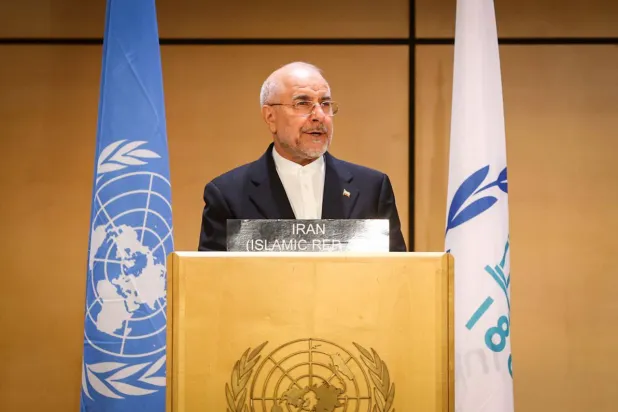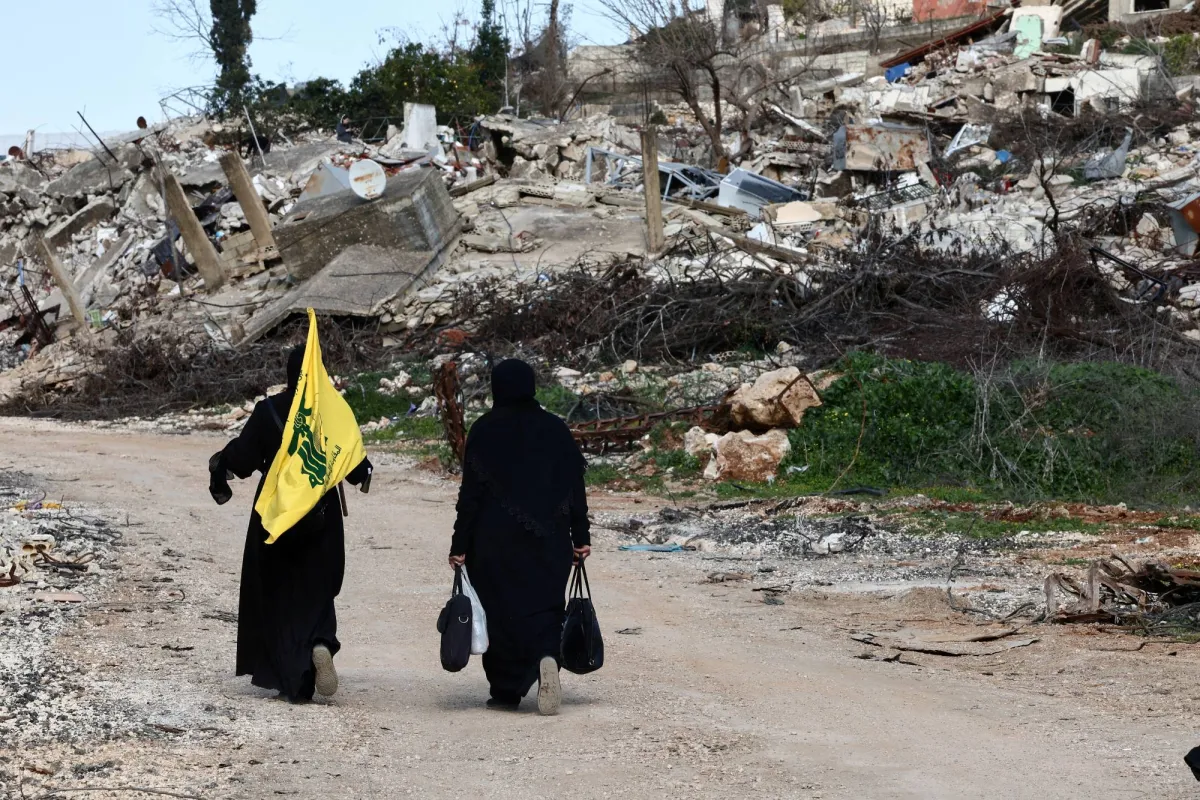
Iranian Parliament Speaker Mohammad Baqir Qalibaf said that the Israeli attack on Iran last month was not the result of the failure of the diplomatic path, but rather in the midst of negotiations, “at a time when deputies criticized the Iranian government’s endeavor to return to the dialogue table with Washington, the day after Foreign Minister Abbas Araqji confirmed that no understanding has so far to resume the diplomatic path.
Iranian websites quoted Qalibaf as saying at the sixth conference of the heads of parliaments in the world in Geneva, on Wednesday, that “the Islamic Republic was exposed to an explicit military aggression by the Zionist regime, an attack that was supported and colluded with an American,” noting that about 1,100 Iranians were killed.
Qalibaf added that the attack “did not take place as a result of the failure of the diplomatic path, but rather in the midst of the same political negotiations.” He continued: «Iran was present at the negotiating table and was committed to dialogue, but the aggressors were the ones who turned the table and chose another path. In response to this aggression, Iran defended firmly its lands and people.
Rising anger
Inside, parliamentarians launched an attack on the government because of its adherence to the negotiating path, especially messages received by Iranian Foreign Minister Abbas Araqji, and before that President Masoud Boukhousian in dialogues of American media.
“I feel very amazed by the President of the Republic and the Minister of Foreign Affairs, A transcendent system that attacked our country, and the United States has followed aggression against us. What is your duty towards the aggressor? What is your responsibility as representatives of the Iranian people? We are not satisfied with some of your wrong behaviors and positions, and we object to them. ”
Iranian President Masoud Bouchikkan had held a meeting with the National Security and Foreign Policy Committee in Parliament on Monday evening.
Delegations from Iran, the European Union and European Troika (France, Britain and Germany) met for about four hours to hold talks at the Iranian consulate in Istanbul, on Friday. And that is after these forces walked to activate the “Snap Pak” or “trigger” mechanism as the Iranians call them. It provides for automatic oud to international sanctions, if Tehran does not resume negotiations with the United States on its nuclear program.
Before the meeting, Iran opposed proposals for extending the work of the 2231 decision of the United Nations, which approves the 2015 nuclear agreement, as its end, which aims to restrict the Iranian nuclear program.
The United States held five rounds of talks with Iran before launching air strikes on them in June, which US President Donald Trump said it had “destroyed” the Tehran nuclear program, which Washington and its ally Israel says it aims to possess a nuclear bomb.
Iran has repeatedly threatened to withdraw from the treaty not to spread nuclear weapons if the sanctions returned. Iranian President Masoud Bizchitan said last week that his country was ready for another war, stressing the continuation of his nuclear program within the framework of international law without the intention of making nuclear weapons.
Dlegani addressed Bzshkian and Iraq, saying: “They acted and spoke in a way that does not seduce enemies.” He added: “Instead of seeking first to issue an international decision and declaration condemning the aggressor, they make statements that have no place between the Iranian people. You have to define the aggressor and introduce him to the world, then demand compensation for this aggression to punish him, not to play according to their rules as if you were in their stadium.
“We were conducting negotiations and completing its fifth round, and we were ready to hold the next round,” Deligani added. But the opponent struck under the belt and attacked our country, while you are still chasing and wooing them, and this is surprising. ”
The deputy said, “The believer does not bite from the hole twice.” The government reminded the linear of the Red Law: the strategic labor law and the law to suspend cooperation with the International Atomic Energy Agency.
“An empty mechanism”
He also reduced the Western threats about the “Snap Back” mechanism, saying: “The Americans and the Europeans fired all the bullets in the trigger mechanism store, and the store is now empty, so why are you afraid of it?”
He threatened to confront a Buschakian team in Parliament, saying: “Know that if you continue in such wrong statements, we will definitely use our control tools in Parliament. We will not allow the wasting of the rights of this people to seduce enemies. ”
This comes two days after Representative Alaeddin Borujerdi, a member of the National Security Committee in Parliament, announced that Iran has rejected Europe’s request to extend the “trigger mechanism” for six months, indicating that European Troika sought at the Istanbul meeting to extend the mechanism, indicating that Russia opposes this extension.
Borujerdi said in a television interview on Monday evening, that the Europeans “seek through this plan to keep the nuclear file under the Security Council resolutions, which will certainly be against the interest of Iran.” He added: “If the trigger mechanism is activated, there will be no justification for Iran to stay as a member of the Treaty of the Prohibition of Nuclear Weapons.”
Diplomatic race
European countries, along with China and Russia, are the remaining parties in the 2015 agreement from which the United States withdrew in 2018, which lifted sanctions on Iran in exchange for imposing restrictions on its nuclear program. The deadline is close to October 18, which will end with the validity of the decision that rules this agreement.
At that time, all United Nations sanctions will be raised on Iran unless the Snap Back mechanism would be raised before the date of at least 30 days. Activating the mechanism will automatically re -impose these sanctions, which target various sectors of oil and gas to banks and defense.
To provide an opportunity to achieve this, European Troika set at the end of August (August) as a final date to revive diplomatic efforts. Diplomats demand Iran to take concrete steps to persuade them to extend the deadline for up to six months.
A European diplomat told the Associated Press, on Friday, that the rapid return mechanism is “still on”, noting that “the possibility of delaying the activation of the mechanism has been presented, provided that Iran shows a serious diplomatic interaction, and that it resumes full cooperation with the International Atomic Energy Agency, and that concerns about its inventory of enriched uranium are treated.”



